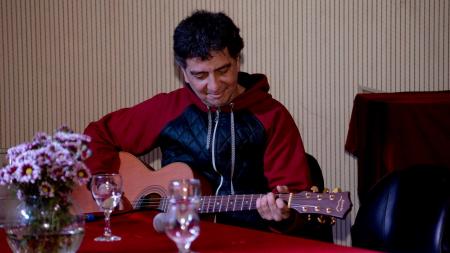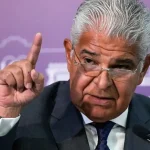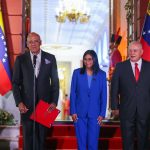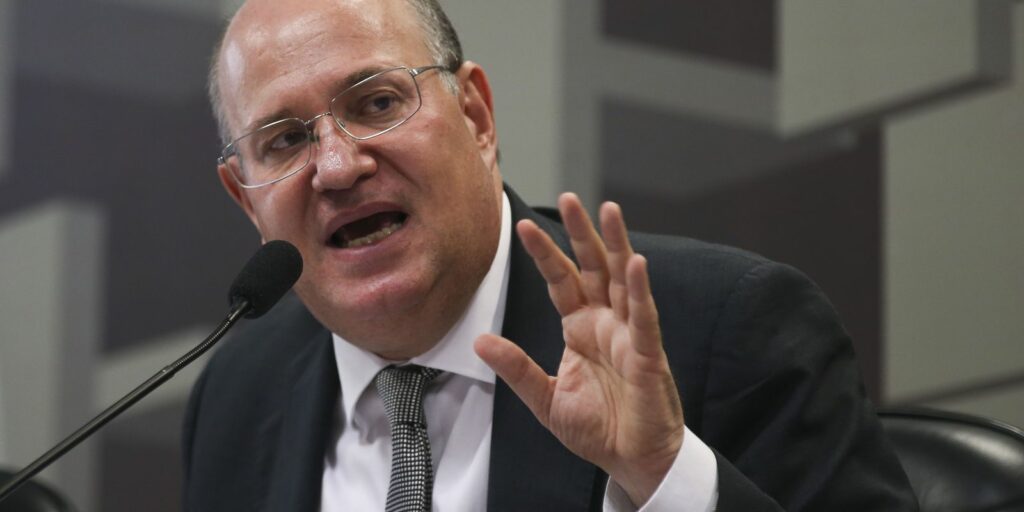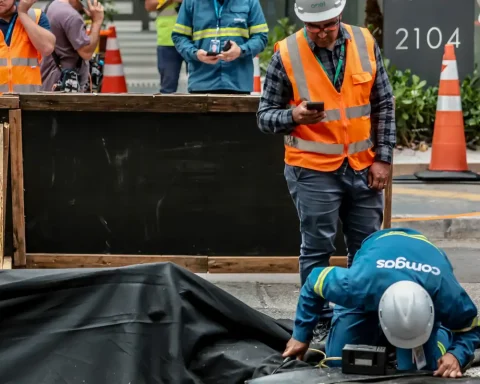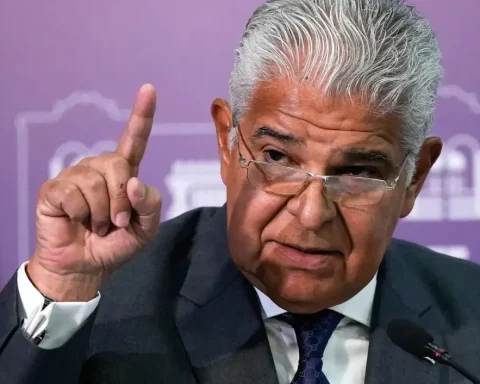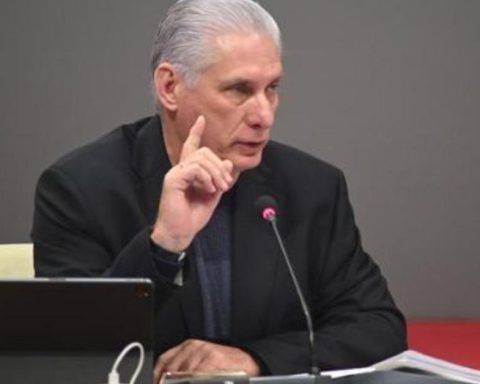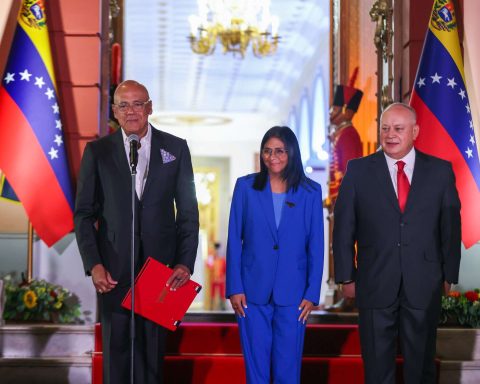The feat of the Vuelta de Obligado combat that is remembered every November 20 on Sovereignty Day is condensed in the lyrics of the most recent song by Gustavo Romero, who defines himself as the “musician of the classroom”.
“Chained to the river// courage drew us// the Vuelta de Obligado// a Saint Peter of love// at the elbow of the river // the anthem sheltered us”says the lyrics of the song that Romero premiered in his youtube channel on the eve of the day that remembers the battle of the patriotic forces to stop the advance of the Anglo-French fleet. Some verses that are immediately replicated in classrooms and on school stages that “adopt” the songs of this Primary Education teacher and independent musician who a few years ago decided to dedicate himself exclusively to making songs and books for school use.
“I am dedicated to the presentation of my material, the books “Musician in the classroom” and “La guitarra desperta”; and the albums “Episodes Celestes y Blancos”, “Tiza lunar” and “Los días para migar”, with which I visit schools, kindergartens, teacher training centers and Book Fairs all over the country”, says the man who shows what he knows how to do both on the Youtube channel and on the Facebook community in which he documents his journeys.

The teacher-musician tells that he discovered his vocation in the school where he taught, preparing an act for Flag Day: “My students were not hooked on the traditional song, so I decided to compose another one, “What my hands carry “. The instrumental was assembled and it was a success in my school. But then life took the song to different places.”
That first song began to play in 2001, in the midst of a crisis: “The idea of belonging had been lost and school events made no sense. This new songbook served to promote traditional songs and revalue the teaching work. For this reason, he was declared of Educational Interest at the National Level, in the Autonomous City of Buenos Aires and in the Partido de Tres de Febrero, where he lives”.
Although he began writing songs dedicated to the ephemeris, over the course of two decades Romero also recorded stories, audio stories and children’s songs that were also used for daily learning. He gives an example: “When I composed the zamba “Madre de todas las casas” for July 9, I researched the different regions of our country and the different authors and composers of the genre because the idea was not that it be sung but also that it be dance”.

Then he adds his conviction that both the classes and the acts can lose solemnity if new authors are supported, more rhythmic words are used. “In my project the concept is love and not a battle. I bet on the culture of solidarity so that the love for the diversity of living in this country is replicated”.
The song of sovereignty is the most recent of more than 100 songs that the musician has recorded and presents on his tour of the schools. “Many topics arose from those visits, such as the song for the rural teacher, “El paisaje del viento” that the rural schools that attended the presentation of the songbook at the Municipal Theater of Olavarría asked me for,” he recalls and points out that with the songbook did work for the publishers Santillana and Tinta Fresca and his album “Tiza lunar” was published by the National Institute of Music, nominated for the Gardel Award and presented at the Buenos Aires International Book Fair, at the Mar Book Fair del Plata, La Rioja and Jujuy but also in the National Library and the Book Museum and the Florencio Constantino theater in the city of Bragado. But the tour continues because he is always ready to go to the classrooms and patios with his guitar so that the boys and girls feel more sovereign or simply find words to say goodbye to their kindergarten.
The World Cup, a chance to be patriotic
“The love that a person feels for his country is related to the love that one feels for his family, for the very idea of belonging and if the family likes football, one feels unintentionally linked by affection to a game of soccer”, explains Romero about the feelings that the Soccer Championship generates in the youngest.
Then he warns: “The problem is when you become a fanatic and the idea of homeland is lost, and the World Cup patriots, when they return to their routine, ignore the reality of the country.”
